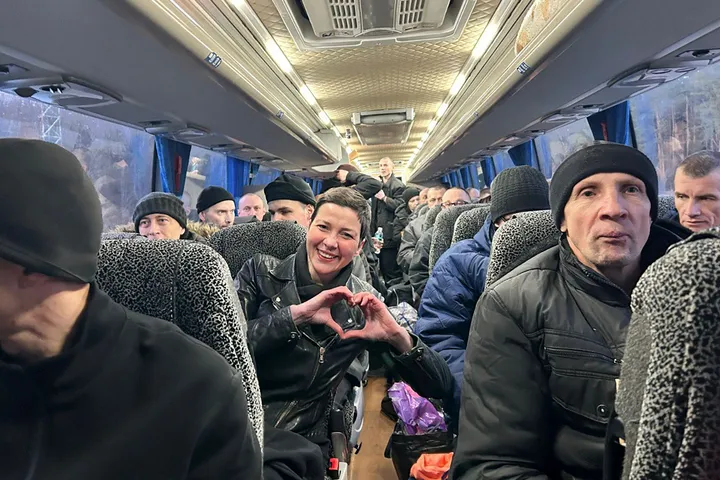GUWAHATI, India — Shahjahan Kazi, 56, is tired of proving his citizenship. A teacher in a government-run school in India's northeastern state of Assam, Kazi recently found that his name had been excluded from the list of people who have qualified for the highly controversial citizenship test.
Kazi is one of the four million people who have been left out of what the government describes as the National Register of Citizens (NRC), a draft list of residents formulated by the census officials.
The first NRC was published in 1951, with a list of Indian citizens' names, weeding out the alleged illegal migrants from the former East Pakistan, which is today's Bangladesh. The question of who was an actual native of Assam, which borders Bangladesh, has haunted the state ever since and even dominated India's political scene.
The ruling Hindu nationalist Bharatiya Janata Party (BJP) has often brought up the citizenship question for political gain.
As the Indian government officials released the new NRC draft on July 30, the ruling BJP faced criticism for adopting a "very insensitive approach" toward the people. The main opposition Congress lashed out at the government for not ensuring that "genuine citizens do not become disenfranchised."
According to Kazi's account and several newspaper reports, the NRC officials did end up depriving tens of thousands of people of their citizenship rights.
Their names or their parents' names have appeared in the NRC of 1951 and in several voting and government documents up to 1971 and beyond. For them, they provide solid evidence of their Indian citizenship.
A native of Barpeta, Kazi said in spite of submitting all the documents, he could neither find his name nor that of his family members' in the list.
“What do I do now? I’m tired of proving my citizenship time and again. I don’t know what my fate will be,” Kazi told TRT World.
None of his family members – his wife and three sons – has made it to the list.
Kazi said it was hard to come to terms with the list since his forefathers were born and brought up in Assam.
“Suddenly, how come we are not Indians?” he said.
The perpetual suspicion
In 1997, the Election Commission of India declared Kazi's status as "doubtful." The case went to the Foreigners Tribunal, where Kazi produced all the relevant documents in his defence. Almost two decades later in 2016, the tribunal ruled in Kazi's favour, restoring his voting and citizenship rights.
“I don’t understand why is this happening to me? Is the government is testing the level of my patience? I’m already humiliated when I was barred from voting rights. I ran from posts to pillars to prove myself as an Indian in 2016. But again I have to prove. This is absolutely insane,” Kazi said.
The credibility of the list received serious battering when it was learned that individuals who had served at senior posts in the Indian army and the air force had also been stripped of citizenship.
“How is it possible that an illegal citizen has served in the army? Absolute rubbish," said a 50-year-old Azmal Haque, who has retired from the Indian army as a junior commissioned officer.
"We are hurt at the behaviour of the state machinery. We are humiliated and feel insulted.”
Haque and several other disenfranchised army officers intend to write to the President of India Ram Nath Kovind and ask him "why we have been sidelined."
In response to the criticism, India's Home Minister Rajnath Singh said that the people who couldn’t find their names in the final draft need not worry.
“I emphasise on the fact this is not the final but a draft publication. There will be ample opportunities for everyone to prove their citizenship as per the law. There may be cases where some applicants have failed to submit proper documents. So, these people will be given chances for corrections. And even after that, some people didn’t find their names in the final list, these people will be able to approach the Foreigners Tribunals,” Singh said.
The government has asked people to file their citizenship claims between August 30 and September 28.
“There is no fear at all," NRC coordinator Prateek Hajela told TRT World.
"If their names are not in the final draft, it doesn’t mean that these people are illegal. This is just a draft and I’m telling you that these people will be given ample opportunities for claims and objections."
The road ahead
Aman Wadud, a Guwahati-based activist and lawyer, argues there are lapses in the whole process of examining the identity of the people and casting doubt on their nationality for which genuine Indian citizens are suffering.
“Now when the process starts for addressing claims and objections, I want a transparent method so that no genuine Indian citizens are left from the list. To ensure fair and transparent hearing, deposition of family members of the applicants should be recorded and a certified copy should be issued to the applicant,” Wadud told TRT World.
After this, if some people are not included in the final list of NRC, they will have to approach the Foreigners Tribunal, which would be a long and frustrating legal battle.
“Trial before the tribunals is a long and complex process. It's tougher for poor and illiterate who can't afford a good lawyer. Very often Indian citizens are declared as foreigners for weak legal representation and clerical errors in the citizenship documents.” Aman said.
There are already around 250,000 cases pending in the foreigners tribunals in Assam.
























